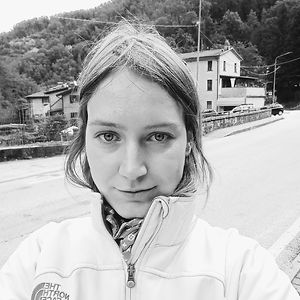
Scientists Test The Efficacy Of 14 Masks, Find One Actually Increases The Risk Of Getting Infected
As the world is experiencing a surge in coronavirus cases after reopening and relaxing social distancing restrictions, it’s becoming clear that face masks should once again be a part of our daily lives. And at this point, we’d better know which masks really protect us and which ones just make things worse.
The team of scientists at Duke University in North Carolina carried out tests on 14 face coverings of different styles, from cotton masks to bandanas and neck fleeces. They employed an optical measurement method using a camera and laser pointer to illuminate particles emitted by a person when wearing each face covering.
The tests showed which masks are more and less effective. So, let’s take a look at the illuminating results down below.
The researchers at Duke University tested these 14 different styles of face coverings to see how effective they really are
Image credits: dukehealth
Three-layer surgical masks performed well at stopping the spread of the coronavirus
The valved N95 masks do not compromise the protection of the wearer, but can decrease protection of others surrounding the wearer
Knitted masks performed next worst in stopping the droplets
Polypropylene masks came in third best in protecting from the virus
The one-layer Maxima AT mask didn’t stand out from the other masks
Cotton masks that can be made at home also proved to be effective at stopping the spread of the virus
The Loser. Neck fleeces performed the worst because the material broke down large droplets into smaller ones that spread into the air more easily
Duke University researcher Martin Fischer, who conducted the test, said they were extremely surprised to find that “the number of particles measured with the fleece actually exceeded the number of particles measured without wearing any mask.”
Bandanas did not provide much protection
The Winner. N95 non-valved masks used by healthcare professionals proved to be the best at stopping the transmission of respiratory droplets
Image credits: dukehealth
The study’s authors compared the dispersal of droplets from a participant’s breath while they were wearing one of the 14 coverings to the results of a control trial where their mouth was fully exposed.
In conclusion, N95 non-valved masks performed the best and neck fleeces the worst at protecting from the virus
Image credits: dukehealth
A visual aid shows how the laser beam and sheet of light work to capture respiratory droplets
Image credits: dukehealth
The team of scientists used a black box, a laser, and a camera to measure respiratory droplets and mask effectiveness in withholding them. A simple computer algorithm then counted the amount of droplets with each mask.
The video shows how scientists at Duke University ran the experiment on the effectiveness of facial coverings
Image credits: dukehealth
Plus, the measurement setup is an inexpensive tool that can be easily built and operated by non-experts. The team concluded that it would “allow for rapid evaluation of mask performance during speech, sneezing, or coughing.”
Fischer also toldCNN the experiment helped to raise awareness that “very simple masks, like these homemade cotton masks, do really well to stop the majority of these respiratory droplets.”
And this is what people had to say about the results
You wear your mask mostly to protect others, and hope that others make that same choice to protect you. Someone wearing a mask is respecting the people around them. Pls wear a mask y'all. Even here in Nz we are re initializing the emphasis, with sadly our first case today that wasn't an incoming traveller in isolation, but instead a local family. Our wake up call. If we in NZ need masks, everyone does
I'm so sorry to hear the virus is back in NZ. 100 days without a local infection and now this
Load More Replies...It is dreadfully laid out. Starting from 1. Performed well 2. Good for you but perhaps not others 3. Next worst (I thought the first two were ok!) 4. Is 3rd best (huh?) and 5 has no comment above it at all. Surely listing them in order from best to worst or vice versa, would have made a lot more sense.
Load More Replies...yup, horray for science! good thing there are people out there who actually do counter research to this type of useless experiment. read the post on Reddit about the "hideuous methodology" used in this experiment. www.reddit.com/r/EverythingScience/comments/i7q7q3/a_duke_university_study_tested_the_efficacy_of/
Load More Replies...You wear your mask mostly to protect others, and hope that others make that same choice to protect you. Someone wearing a mask is respecting the people around them. Pls wear a mask y'all. Even here in Nz we are re initializing the emphasis, with sadly our first case today that wasn't an incoming traveller in isolation, but instead a local family. Our wake up call. If we in NZ need masks, everyone does
I'm so sorry to hear the virus is back in NZ. 100 days without a local infection and now this
Load More Replies...It is dreadfully laid out. Starting from 1. Performed well 2. Good for you but perhaps not others 3. Next worst (I thought the first two were ok!) 4. Is 3rd best (huh?) and 5 has no comment above it at all. Surely listing them in order from best to worst or vice versa, would have made a lot more sense.
Load More Replies...yup, horray for science! good thing there are people out there who actually do counter research to this type of useless experiment. read the post on Reddit about the "hideuous methodology" used in this experiment. www.reddit.com/r/EverythingScience/comments/i7q7q3/a_duke_university_study_tested_the_efficacy_of/
Load More Replies...
 Dark Mode
Dark Mode 

 No fees, cancel anytime
No fees, cancel anytime 













































































172
44